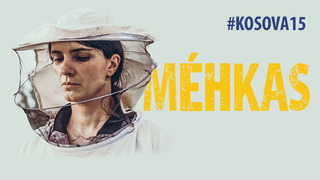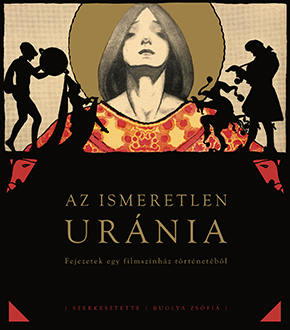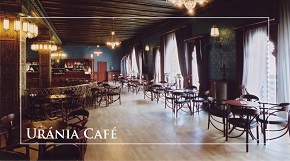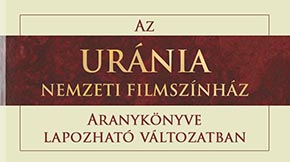Hive
kosovar drama, 84 min, 2021
in Albanian, with English and Hungarian subtitles
Director: Blerta Basholli
Scriptwriter: Blerta Basholli
Cast: Yllka Gashi, Çun Lajçi, Aurita Agushi, Kumrije Hoxha
Fahrije’s husband has been missing since the war in Kosovo, and along with their grief, her family is struggling financially. In order to provide for them she launches a small agricultural business, but in the traditional patriarchal village where she lives, her ambition and efforts to empower herself and other women are not seen as positive things. She struggles not only to keep her family afloat but also against a hostile community who is rooting for her to fail.
Based on a true story
The real Fahrije Hoti was born on September 18, 1969 in Rogova i Hasit, Gjakova Municipality. She worked as a tailor while her husband and father of their two children, Bashkim Hoti, worked abroad for three years. Due to the war and his work, Bashkimi and Fahrijia only lived together for six of the nine years of their marriage. Fahrijie’s good family life turned into a tragedy in 1998, when Serbian paramilitary forces occupied Prizren and Rahovec. To save the lives of her children, Fahrije immediately left for Albania on March 26, where they stayed for three months and returned at the end of June 1999 to a destroyed village and a new life with her husband missing.
Needing to resume her life after the end of the war and to be able to provide for her children, she founded the “Krusha” food company, which is led one hundred percent by women and employs around fifty, most of whom were widowed during the recent war in Kosovo. With their locally made products, these women supply about 28 markets in the big cities of Kosovo. Their products are also sold abroad and have been available in the Swiss market since 2014.
Fahrije Hoti has not seen her husband since she fled, and now 20 years after the war ended, she is still searching for him. Together with many other men and young boys, Bashkim remains on the missing persons list from a war that has taken more than ten thousand lives.
Director's Statement
“A widow should only do housework, respect her in-laws and stay at home.”
These were the words Fahrije Hoti heard every day as soon as she got a driver’s license and started to provide for her kids, having lost her husband during the last war in Kosovo.
I was sitting in my apartment in Brooklyn, NY, trying to finish writing my school project while I was listening to a TV Show from Kosovo. A woman
was talking about getting her driver’s license and the whole village gossiping about how she had humiliated her family. At first, I thought it
was a joke. It was funny yet very sad, hard and motivating. Fahrije Hoti, a widow and a mother of two, had to do something to survive, and she did. She got a driver’s license and got a job. Everyone was talking about it and going crazy, but she did it. One day she opened a little business where she employed other widows and now, she produces pickled vegetables sold all around Kosovo.
Besides being a woman and a mother myself, I was intrigued by her will and power to not only survive, but to achieve something great and never look back. Her positivity and energy are fascinating. That is something I want to bring on screen, a strong female character full of colors, a woman protagonist that needs to be seen by Kosovo and a wider audience. Her decision to continue with her life no matter what was confusing, painful, sometimes even funny, but deeply inspiring.
Awards at Sundance Film Festival, 2021
World Cinema Dramatic: Directing Award
World Cinema Dramatic: Grand Jury Prize
World Cinema Dramatic: Audience Award

I Accidentally Wrote a Book (12)
TicketsCall Us17:30 DíszteremA House on Fire (16)
TicketsCall Us17:30 Fábri teremA legbelsőbb Ázsia - Magyarok nyomában Mongolországban (12)
TicketsCall Us17:45 Törőcsik Mari teremKöln 75 (16)
TicketsCall Us18:30 Csortos teremThe Brutalist (18)
TicketsCall Us19:30 DíszteremDiamanti (16)
TicketsCall Us20:00 Fábri teremHow Could I Live Without You? (12)
TicketsCall Us20:15 Törőcsik Mari teremFutni mentem (12)
![]()
07.21 - 07.25
2025.08.10 18:00 - 21:30
2025.08.24 18:00 - 21:30
2025.10.18 19:00 - 22:30
2025.10.26 18:00 - 21:30
2025.11.08 19:00 - 22:30
2025.11.16 18:00 - 21:30
2025.11.22 19:00 - 23:15
2025.12.07 18:00 - 22:15
2025.12.13 19:00 - 22:15
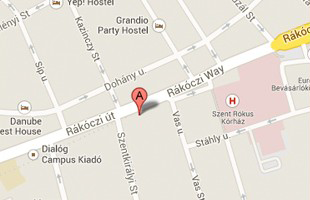
Opening hours: Summer opening hours from June 26 to August 28, 2025! During this period, the box office opens on weekdays at 4:30 PM, on weekends at 10:30 AM.
Box office closes 15 minutes after the start of the last screening.
The Uránia Café is open during the opening hours of the cinema.
© Uránia Nemzeti Filmszínház
1088 Budapest, Rákóczi út 21.
getting here
ticket info
contact us
company details
press
privacy policy

